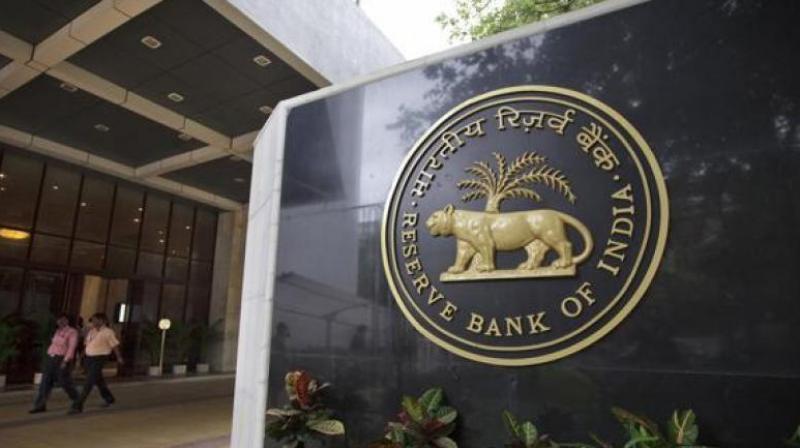RBI fears inflation overshooting target
MPC has projected that the average headline inflation will rise to 4.5 per cent in the first half of the current financial year.

Mumbai: Retail inflation is likely to jump to 5 per cent in the second half of current fiscal, RBI said today while acknowledging that meeting its mandated target of 4 per cent will be a "challenging" task.
"What RBI is signalling is that the move to 4 per cent is going to be challenging. There are no lucky disinflationary forces on the horizon that were there in the past," executive director Michael Patra told reporters after the Reserve Bank's first bi-monthly policy review of 2017-18.
The Monetary Policy Committee has projected that the average headline inflation will rise to 4.5 per cent in the first half of the current financial year and will rise to 5 per cent in the second half. Under its agreement with government, the Reserve Bank is committed to get retail inflation down to 4 per cent in the medium term, plus or minus 2 per cent.
Keeping that in mind, the central bank shifted its stance to "neutral" from "accommodative" in the February review. While keeping the repo rates unchanged today, RBI Governor Urjit Patel however said that revisiting the neutral stance is unwarranted despite the difficulties which the central bank sees.
Patel added: "We have also said that the economic content of the incoming data will determine our future course. We are of course aware of the risk on inflation, and we have a medium term target to achieve. So, we will do that. But at this juncture, the shift from accommodative to neutral is adequate."
RBI said a wearing-off of the base effect, and other risks like El Nino factor impacting monsoons, one-off effects of the GST, and the hike in government salaries will likely push up inflation.
Deputy governor Viral Acharya said the excess liquidity supply at present is not seen seeping into the inflation number. Risks are "evenly balanced" around the inflation trajectory at the current juncture and there are upside risks to the baseline projection, the RBI said.
"The main one stems from the uncertainty surrounding the outcome of the south west monsoon in view of the rising probability of an El Nino event around July-August, and its implications for food inflation," RBI said, as it kept the status quo on key interest rate for the third time in a row.
A proactive supply management will play a critical role in staving off pressures on headline inflation, it said.
"In case the increase in house rent allowance as recommended by the seventh central pay commission is awarded, it will push up the baseline trajectory by an estimated 100-150 basis points over a period of 12-18 months, with this initial statistical impact on the CPI followed up by second order effects," RBI said.
On the downside, RBI said international crude prices have been easing recently and their pass-through to domestic prices of petroleum products should alleviate pressure on headline inflation.
Also, stepped-up procurement operations in the wake of the record production of foodgrains will rebuild buffer stocks and mitigate food price stress, if it materialises, RBI said.
After moderating continuously over the last six months to a historic low, retail inflation measured by year-on-year changes in the Consumer Price Index turned upwards in February to 3.7 per cent.
While food prices bottomed out at the preceding month's level, base effects pushed up inflation in this category.

